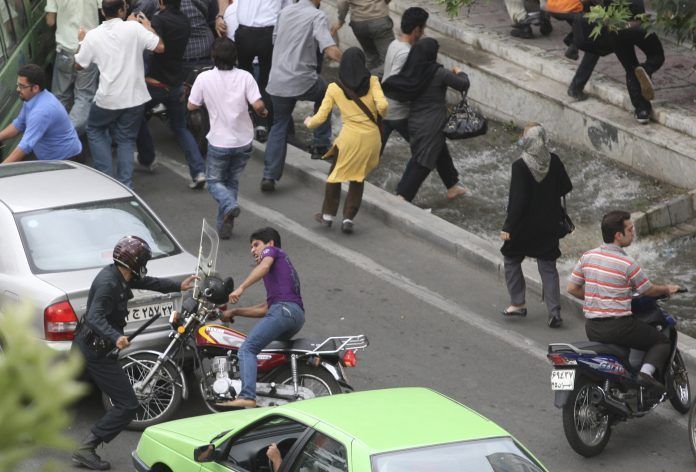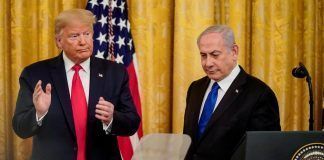The British government has refrained from imposing sanctions on alleged human rights abusers in Iran to avoid upsetting Tehran during the nuclear negotiations in Vienna, said Steve McCabe, a member of the opposition Labor party and chair of the UK parliament’s Labor Friends of Israel (LFI) group.
“The British government has shown a consistent reluctance to stand up to Iranian human rights abusers in recent years,” McCabe said in an interview with Kayhan Life.
He said this reluctance was because of “an apparent desire to appease the regime in Tehran” amid uncertainty around the nuclear deal — the Joint Comprehensive Plan of Action or JCPOA — caused by the previous US administration’s withdrawal from it, and by the recent hostage situation.
“This fits the broader pattern of [UK Prime Minister Boris] Johnson’s government having very little to say about the Middle East region,” he added.
Iran Executes 26 People in 10 Days Amid Protests, Human Rights Expert Says
Talks between states signed up to the nuclear deal have stalled following Tehran’s demand that current sanctions on Iran be lifted before any agreement can be reached. Parties to the deal the US and the UK have rejected the demand.
Britain’s government launched its own sanctions regime in July 2020 following the ratification of the global human rights sanctions regulations. But it has not yet used the legislation to denounce an Iranian official, former official or individual accused of human rights abuses.
Such penalties are sometimes called ‘Magnitsky’ sanctions after Sergei Magnitsky, a whistleblower who exposed corruption by Russia’s government. Magnitsky died in jail in 2009 after repeated requests for medical help. His death inspired an international push for sanctions laws to hold perpetrators of grave human rights abuses around the world to account.
McCabe’s comments follow the publication of a May 30 paper by Labour Friends of Israel titled “Iran: A Darkening Picture at Home and Abroad.” The paper called on the British government to:
– sanction state officials named as human rights abusers in Iran;
– designate the Islamic Revolutionary Guards Corps (IRGC) as a terrorist organization;
– acknowledge the arbitrary detention of foreign nationals as a form of hostage taking;
– provide an update on its use of powers against the Iran-backed militia group Hezbollah; and
– set out proposals to address the threats posed by Iranian disinformation in the UK and abroad.
Introducing the paper in a May 30 article on the LFI website, UK House of Lords Chair for LFI Baroness Meta Ramsay, a former case officer for Britain’s Secret Intelligence Service (SIS/MI6), said: “The Iranian people have suffered the most appalling human rights abuses for four decades. Sadly, there is evidence that this situation is worsening. The regime is becoming more brutal in its efforts to crush rising discontent.”
“The current talks in Vienna may help to put the brakes on Iran’s accelerating nuclear programme, but they will almost certainly do nothing to stop Tehran’s ballistic missile programme or its support for terror groups that have caused chaos and bloodshed across the Middle East. The talks will also do nothing to ease the plight of another group of people who suffer due to the Islamic Republic’s pernicious policies: the people of Iran themselves,” Ramsay added.
The paper identified 10 human rights abusers who LFI said should be considered for the next round of sanctions by the British government. The list included:
– Ali Ghanaatkar, the head of interrogations in Iran’s notorious Evin prison;
– Gholamreza Ziaei, the former chief of Evin prison;
– Ali Rezvani, a state media journalist alleged to have interrogated detainees;
– Hassan Shahvarpour, the commander of the Islamic Revolutionary Guard Corps (IRGC) in Iran’s Khuzestan province; and
– Mohammad Javad Azari-Jahromi, the former minister of information and communications technology, who enabled a nationwide internet blackout during the 2019-2020 protests.
Iran’s regime has been continuously criticized by state leaders and international human rights bodies for its brutal crackdowns on unarmed anti-government protestors in the country. The regime has also been accused of using internet blackouts to conceal social unrest and acts of violence by Iranian officials.
Human rights organizations have also condemned Tehran’s policy of arbitrarily detaining dual nationals for political leverage. Family members of detained foreign nationals have criticized their governments for failing to do more to protect individuals from unjust detentions in Iran.
“Recognizing the unjust detention of foreign nationals as state hostage taking would help yield additional tools to counter the practice, particularly relating to the 1979 Hostages Convention, which defines state hostage taking and prohibits its practice. The framework within which action can be taken to aid arbitrarily detained nationals is severely limited, especially in the context of Tehran’s unconventionally transactional approach to ‘hostage diplomacy,’” McCabe said.
ANALYSIS: How Hostage Taking Is An Integral Part of Iran’s Foreign Policy






















